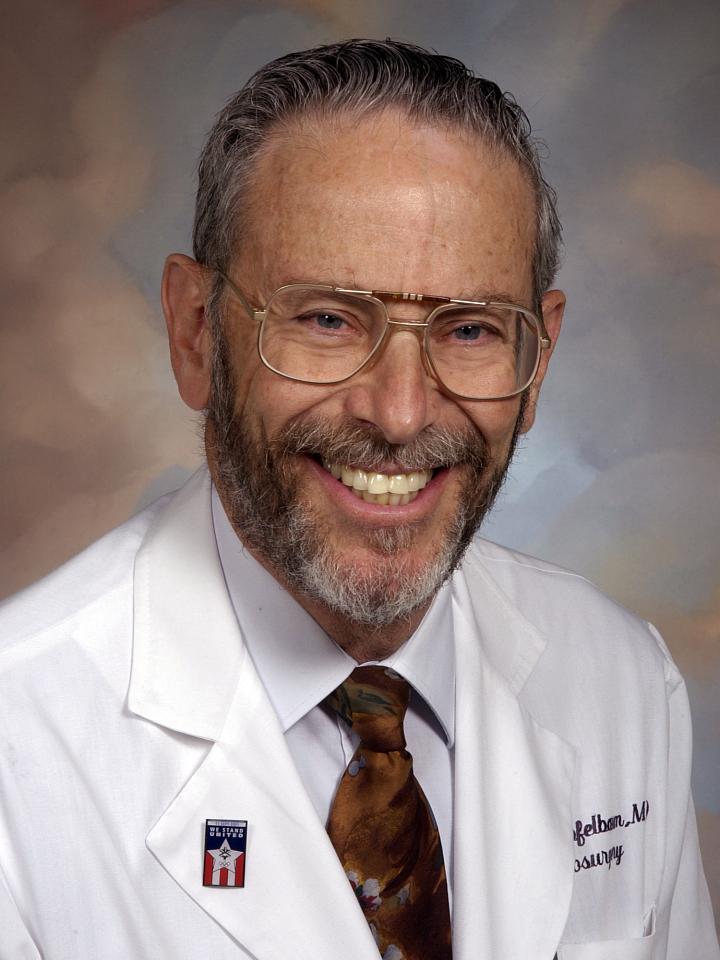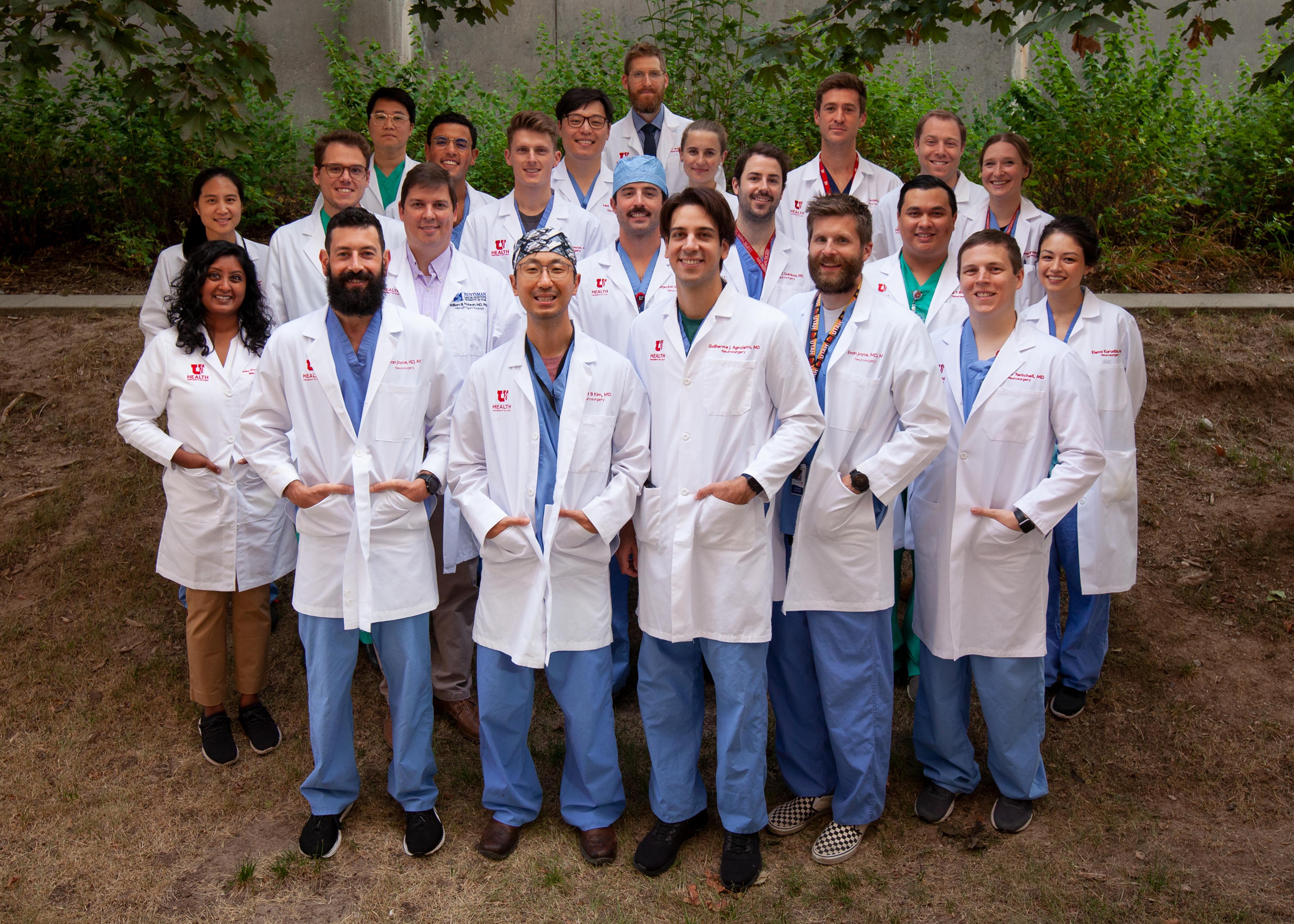Recent changes in the structure of the neurosurgery residency have led to 1) the creation of three resident research tracks (basic & translational science; clinical investigation & practice science; and education, service, policy & equity, diversity & inclusion) and 2) the dedication of PGY-4 and -5 years to those efforts. As a result of those changes, department leadership knew that it was important to offer residents partial financial support and to further the department’s mission of training neurosurgical leaders and researchers. The Ronald I. Apfelbaum MD Neurosurgery Resident Research Fund (the “Apfelbaum fund”) was established to support neurosurgery residents and defray costs during their two years of research.
The fund is named for the main contributor, Dr. Ronald Apfelbaum, now retired, who was a Professor of Neurosurgery and worked at the University of Utah for more than 30 years. Dr. Apfelbaum was nationally and internationally renowned in the field of neurosurgery. He was deeply invested in neurosurgical resident education, and wanted to donate to the department to encourage the growth of the program. Dr. Apfelbaum once said: “If I do a great operation and help someone, I help someone. If I teach the resident how to do that while I’m doing it and he helps someone, now I’ve helped more people.”

Although Dr. Apfelbaum donated to the department several years ago, the fund has gone unused, and it was only recently that this plan was created to use the fund in a way that honors Dr. Apfelbaum’s wishes and encourages our residents to grow in their careers and lives.
As part of the process, a board has been set up to adjudicate the Apfelbaum fund and has laid out a plan to help each resident focus their area of study and meet their goals throughout the years of their residency. First-year residents will choose a track to follow and then form an advisory committee that they will meet with regularly. With that focus and direction, residents can then pursue their research interests with support from the Apfelbaum fund in a variety of ways, such as earning higher degrees, traveling to attend meetings, and performing lab research.
“I think probably the thing that has given me the most pride as I look back on it, is not what I’ve done, but it’s what the people that we’ve trained have done,” said Dr. Apfelbaum. “To be able to mentor some other people and see them blossom and grow and have a part of it. There’s no one person that trains any of our residents; they learn from all of us in the department. But to see some of them, how they’ve gone on and what they’ve done, and realize that you’ve multiplied what you’ve been able to do to help patients by a huge factor because of them, I think gives me the greatest pleasure.”

We’re excited to see how this fund enables residents to learn and pursue interests during their research years in ways that will help them become better neurosurgeons.